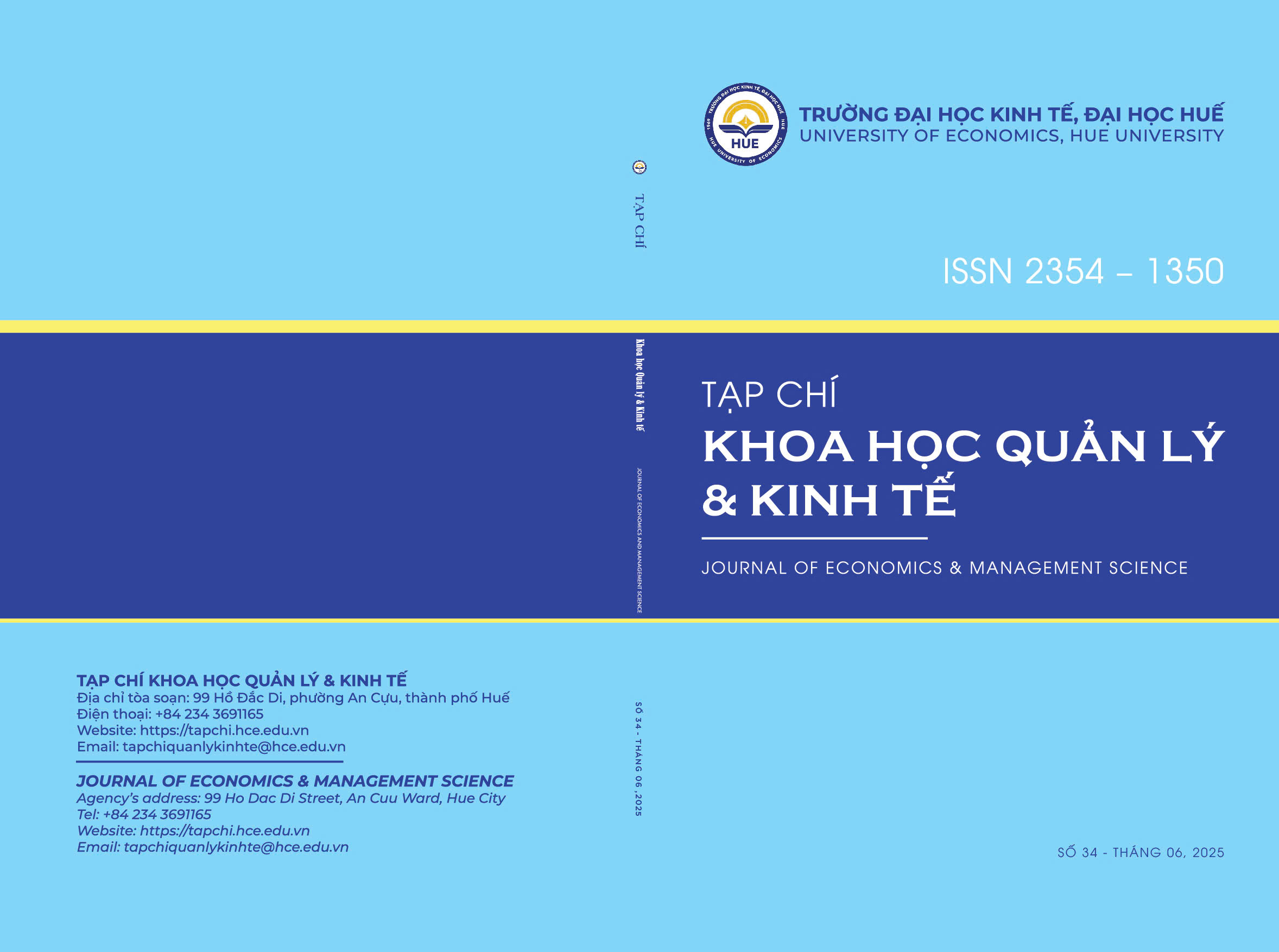##plugins.themes.huaf_theme.article.main##
Abstract
This study analyzes the economic-environmental trade-off of 353 marine cage lobster farming households in Vietnam, focusing on their potential to simultaneously reduce production costs and nutrient consumption when adopting environmentally-friendly production practices. The analysis reveals that most farms can achieve a positive economic-environmental outcome. However, some farms still face negative trade-offs. To identify factors determining these positive or negative trade-offs, a binary logistic regression model was employed, where the dependent variable takes the value of 0 if production costs increased and 1 if production costs decreased as farms sought to enhance environmental performance. Results indicate that factors such as the age of the household head and farming scalloped lobsters positively influence the probability of achieving a beneficial trade-off. Conversely, overly frequent cage cleaning and greater distances from pollution sources negatively impact this probability. Consequently, the study recommends policy measures and support programs emphasizing effective farm management practices, particularly in optimizing feed use and cage hygiene, to promote sustainable lobster farming development in Vietnam.

